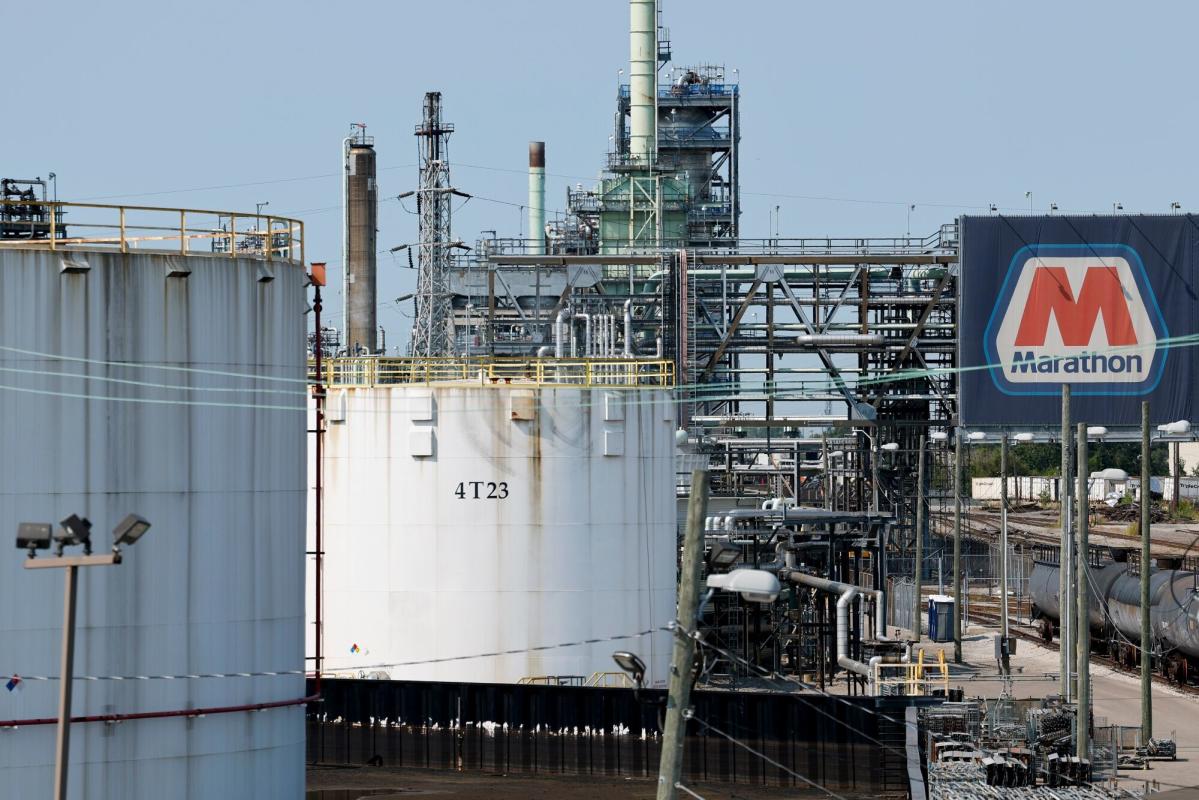(Bloomberg) — Supply Lines is a daily newsletter that tracks global trade. Sign up here.
Most Read from Bloomberg
Marathon Petroleum, the largest US refiner and a major buyer of Canadian crude, sees ample opportunity to switch to domestic oil at its Midwest plants should President Donald Trump’s potential trade war with neighboring countries limit access to foreign supply.
If needed, Marathon’s Midwest refineries could switch to processing more non-Canadian crudes, Chief Commercial Officer Rick Hessling said on the company’s Tuesday earnings call. Domestic US oil from the Bakken formation, Rocky Mountains and the Marcellus and Utica shale basins were examples Hessling gave of alternative crude supplies the company could use at its six Midwest refineries, which processed more than 1 million barrels of oil a day last year.
Even as Trump agreed to push back planned levies on Canada and Mexico by a month, US refiners, which rely on imports, are continuing to assess what the implications will be if the tariffs come to fruition.
One big concern for refiners is how to replace the heavy Canadian crude they have grown reliant on, especially in the Midwest, where the fuel makers have long-benefited from access to the discounted heavy oil and retooled their plants to process it. Valero Energy Corp. warned last week that companies could have to cut output by 10% at their plants were tariffs to be imposed.
“I would say a light switch within our system, we believe would have minimal impact,” Marathon’s Hessling said, referring to the lighter grade of US oil the company could run in place of heavier imported Canadian oil.
Refiners are also assessing who will bear the burden of extra costs if levies go into place. Companies rang the alarm bells in earnings calls last week as the threat of tariffs on Canada and Mexico still loomed. The US imports roughly 4 million barrels of Canadian oil daily, and half a million barrels a day of Mexican crude, along with refined products from both countries.
The majority of that cost “will ultimately be borne by the producer, and then frankly to a lesser extent the consumer,” Marathon Chief Executive Officer Maryann T. Mannen said Tuesday on the company’s fourth quarter earnings call.
Marathon’s CEO said on Tuesday’s earnings call that the tariffs still aren’t set in stone and she’s been in discussions to make clear what impact they would have on the company.
Story Continues
